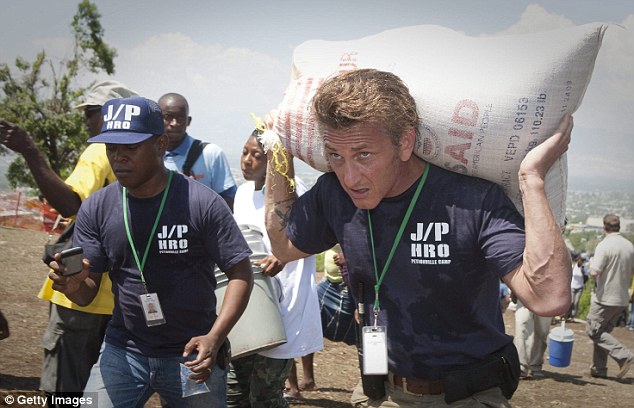Accountability and celebrity

At the World Humanitarian Summit last May, ‘A’ list Hollywood stars—Daniel Craig and Sean Penn—outnumbered ‘A’ list western politicians—Angela Merkel—by two to one. Lack of political interest largely explains the skewed attendance at the summit but the disparity of representation illustrates the prominent role of celebrities in the humanitarian space.
It started in the 1950s when Danny Kaye became the United Nations’ first goodwill ambassador, helping draw attention to the work of the UN children’s agency in the grim post-war years. In what has become a crowded space, not all celebrities are equal. Angelina Jolie stands out as an eloquent advocate for refugees. A goodwill ambassador for UNHCR since 2001, her credibility and star power give her privileged access not just to the media but to the UN Security Council and U.S. Congress. Sean Penn burnished his credentials after the earthquake in Haiti where he set up and ran his own successful non-governmental organisation – JP/HRO.
But what of the rest of the expanding band of actors, athletes, TV hosts, singers, celebrity chefs, royals and cartoon characters (yes!) who are recruited by UN agencies and charities into the ranks of their third party validators? Ferrying them around the world and having them perform in front of the cameras is not effortless or cost-free. Aid agencies who play the celebrity game have dedicated teams with large budgets managing their talent pools.
In our star-struck world, it is assumed that sprinkling stardust around is a good thing for humanitarian endeavour, encouraging the public, policy makers and politicians to lean in rather than out. But are disaster-struck people well served by the attentions of people whose life experience is, in most instances, quite different from their own?
It’s hard to tell because there is little effort on the part of the aid agencies who use celebrities to gauge their long-term contribution. In a paper on the impact of celebrity on the political sphere, Jason Muirragui faults UN agencies for their failure to “utilize benchmarks that measure impact on political or civil society agendas.” A 2006 report by the UN’s Joint Inspection Unit (JIU), which made wide-ranging recommendations to reform the organisation’s Goodwill Ambassador programmes, proposed systems for tracking, reporting and evaluating the role of celebrity advocates.
A decade later there is only limited progress towards this kind of accountability. The job description for the manager of UNHCR’s goodwill ambassador unit says the successful candidate should “guide the monitoring, evaluation and impact reporting on Goodwill Ambassador activities.” But I have found no sign of the key performance indicators or metrics proposed by the JIU. For UNICEF, according to an IRIN news story, the main indicators of the impact of its celebrity coterie are media coverage, social media interest, and fundraising.
What we see are good intentions but not a systematic effort to measure the return on investment. In a humanitarian system that is quite good at dodging the bullet of accountability to both donors and affected people, celebrities may actually set things back by unwittingly encouraging the suspension of disbelief that their special status is heir to. Done right, deploying the talents of famous people to raise awareness and funds can bring advantage to both celebrities and people hit by humanitarian disasters. But without firm evidence, my gut tells me that in the triangular relationship between celebrities, aid agencies and affected people, it is the celebrities who come out on top.
